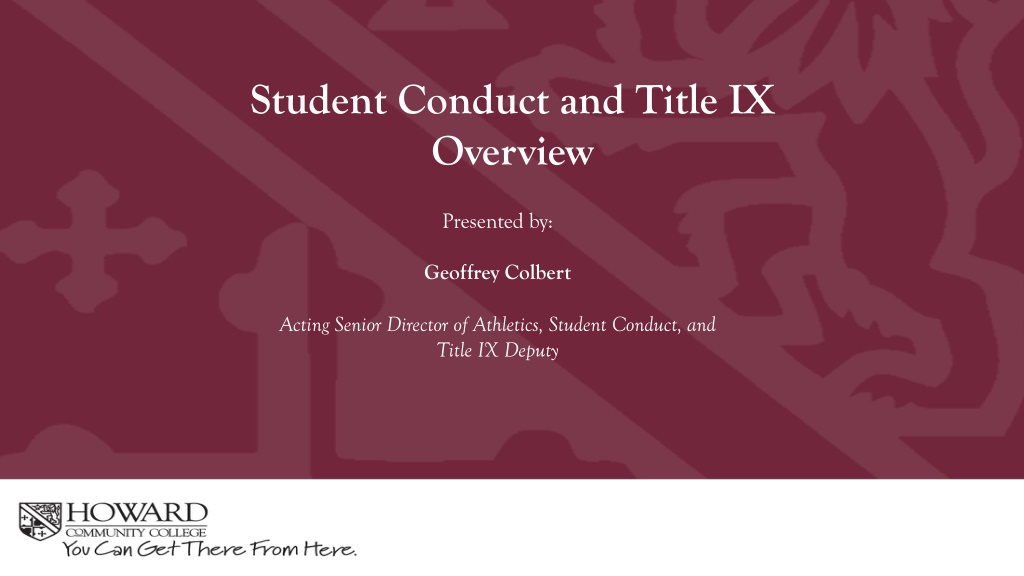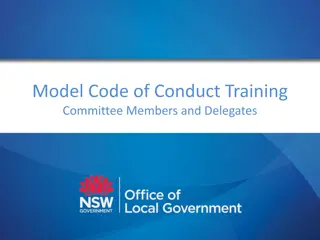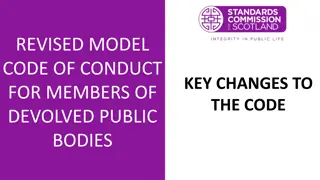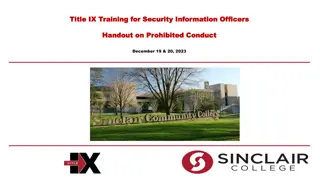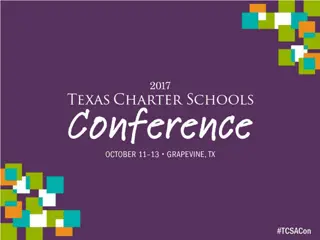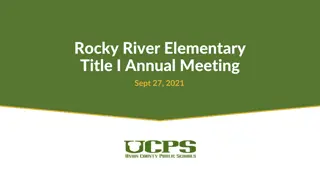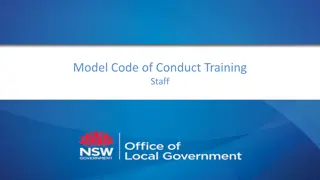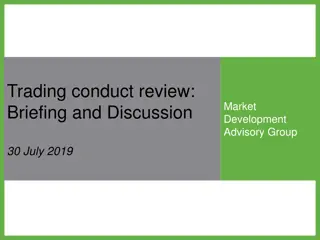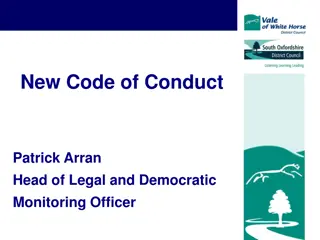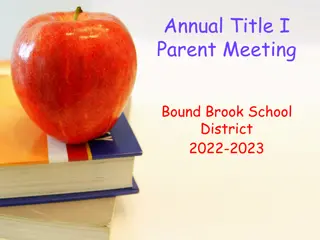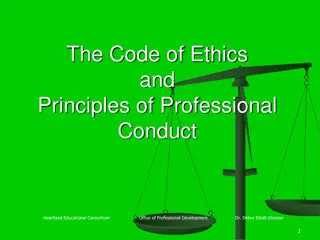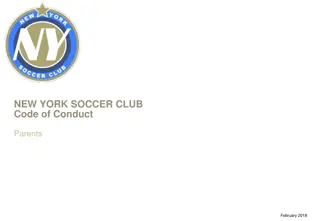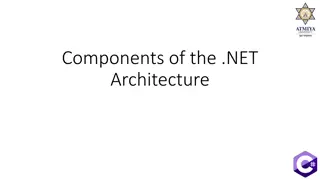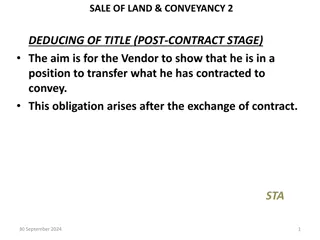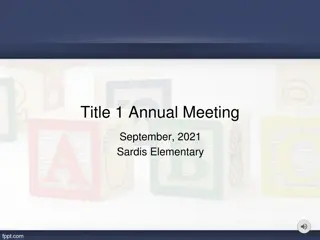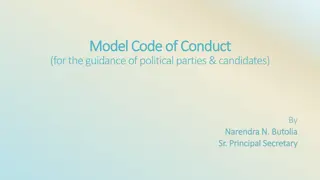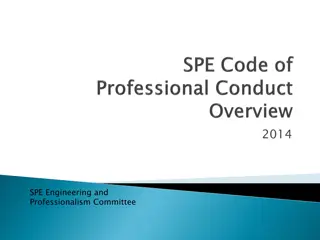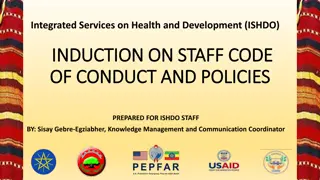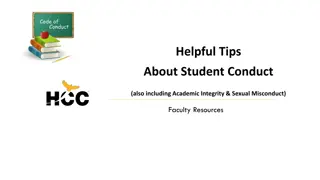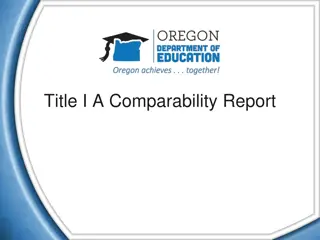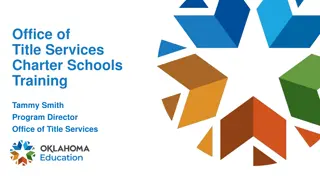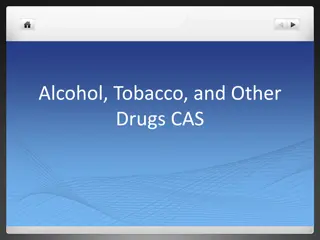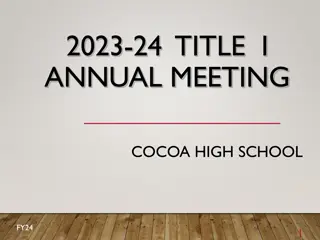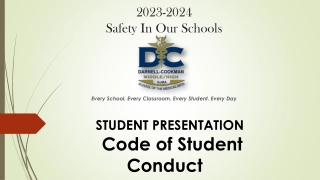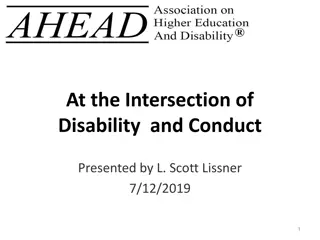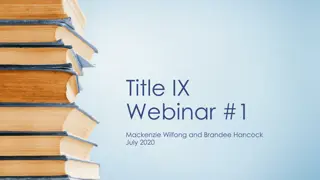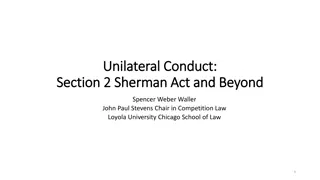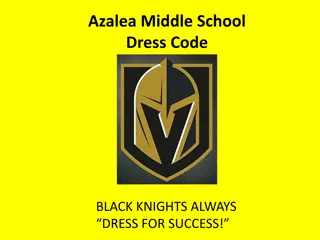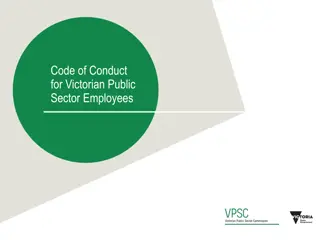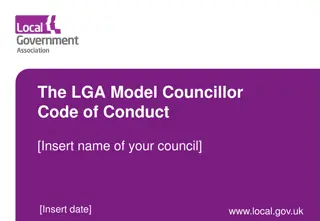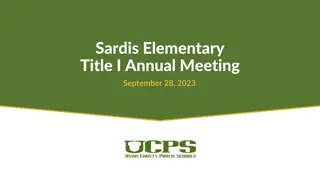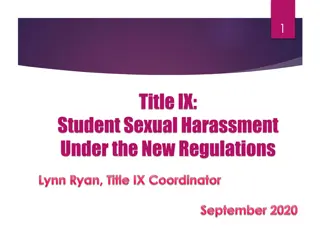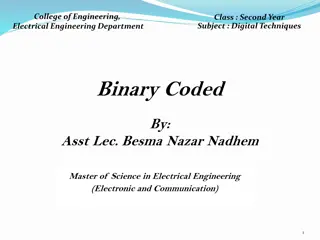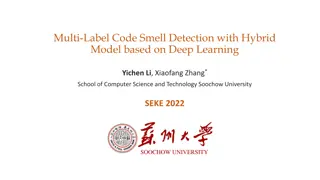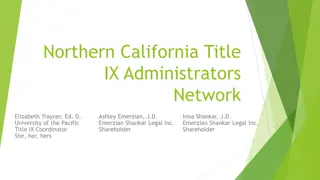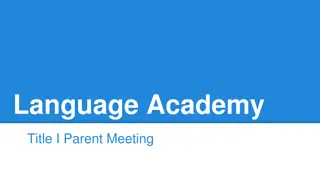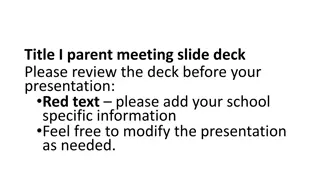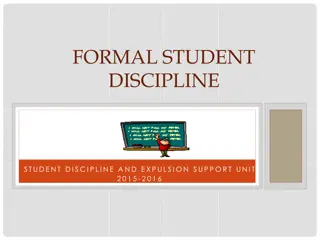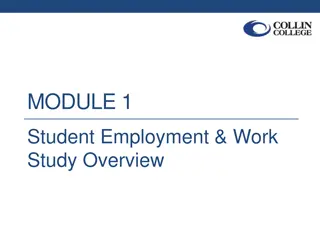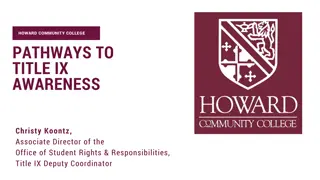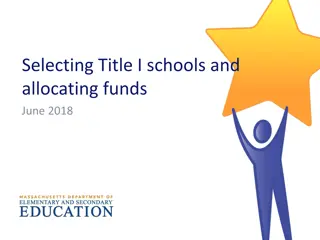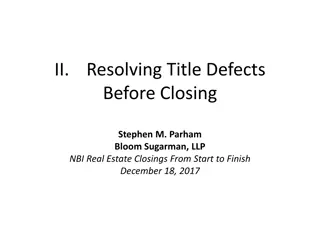Student Code of Conduct and Title IX Overview
This presentation by Geoffrey Colbert covers the Student Code of Conduct, Academic Honesty, Title IX responsibilities, and relevant policies regarding student behavior on campus. It outlines the purpose of the code, where it applies, and examples of academic dishonesty. The importance of upholding these standards is emphasized to create a safe and conducive academic environment.
Download Presentation

Please find below an Image/Link to download the presentation.
The content on the website is provided AS IS for your information and personal use only. It may not be sold, licensed, or shared on other websites without obtaining consent from the author. Download presentation by click this link. If you encounter any issues during the download, it is possible that the publisher has removed the file from their server.
E N D
Presentation Transcript
Student Conduct and Title IX Overview Presented by: Geoffrey Colbert Acting Senior Director of Athletics, Student Conduct, and Title IX Deputy
Overview of Presentation Student Code of Conduct Academic Honesty Title IX and Responsibilities Question and Answer
Student Code of Conduct What is it? List of policies and procedures to govern student behavior Why does it exist? To mold habits and values that foster personal satisfaction To protect members of the campus from harm To create an environment conducive to academic inquiry, a productive campus life, and thoughtful study and discourse To protect the rights of all members of the college community To assure that students have due process Where do the policies apply On campus or at campus related activity Clinicals Off campus when there is a substantial college interest
Student Code of Conduct Housed in the Student Handbook Student Services office (MH 258) HCC Website
Relevant Policies 1. Academic dishonesty 13. Harassment 16. Aggressive behavior 21. Disorderly or disruptive conduct 24. Unauthorized weapons possession 27. Disobedience of college authority 31. Unattended dependents 32. Unauthorized visitors in class 37. Unauthorized use of mobile devices 41. Alcohol or other drug related offenses
What is Academic Dishonesty? The misrepresentation or submission of materials for evaluation that are not the student s own, or fulfillment of an academic exercise that does not result from individual effort or intellectual production Examples Unauthorized use or copying of materials Unauthorized assistance with assignments Unauthorized use of devices or tools Unauthorized prior knowledge of the contents of assessment instruments, such as exams, quizzes, or surveys Falsification or fabrication of information
Academic (dis)Honesty Process Student is notified of violation and 0 on assignment Include that student conduct may give additional sanctions 1stviolation- 0 on assignment 2ndviolation- F in class; removal from class; required meeting 3rdviolation- F in class; removal from class; student conduct sanction hearing Student has appeal option by first speaking to faculty to appeal, then division office, then VPAA
Student Conduct Process Report is filed Student Conduct processes and assess report Student Conduct Conference For less severe violations Student Conduct Committee Hearing For cases involving suspension or expulsion Appeals for suspension and expulsion through VPSS
What Is Title IX? No person in the United States shall, on the basis of sex, be excluded from participation in, be denied the benefits of, or be subjected to discrimination under any education program or activity receiving Federal financial assistance. - Title IX of the Education Amendments of 1972
What is Sexual Misconduct? Title IX: Prohibits discrimination on the basis of sex Prohibits sexual misconduct and harassment Sex includes gender identity Includes any educational activity and any community member Admissions, Recruitment, Financial Aid, Academic Programs, Student Treatment and Services, Counseling and Guidance, Discipline, Classroom Assignment, Grading, Vocational Education, Recreation, Physical Education, Athletics, Housing, Employment, and
Types of Sexual Misconduct Sexual Harassment Sexual Assault Incest Non-consensual Sexual Intercourse Consent Non-consensual Sexual Contact Sexual Exploitation Dating/Domestic Violence Stalking
HCC Reporting Options Report it to HCC Any non confidential employee Public Safety Title IX Coordinators Report it to police Report it to both Consult with confidential resources Third party reporting
Title IX- Resources Title IX Coordinators Dr. Cindy Peterka, Vice President of Student Services Karlyn Young, Acting Associate Vice President of Human Resources Title IX Deputy Coordinators Geoffrey Colbert, Acting Senior Director of Athletics and Student Conduct Christy Lee Koontz, Associate Director of Student Conduct and Compliance
Confidential Resources HCC Counseling Center or other counseling services Hopeworks Medical staff operating in a medical capacity
What Happens if Sexual Misconduct Occurs? Interim Measures Informal resolution Continued interim measures Other remedies Formal resolution HCC investigates Potentially meets with: Complainant Respondent Witnesses Determination if incident should go to hearing or through employee discipline Hold hearing or discipline process Deliver outcome including sanctions Appeal if necessary
